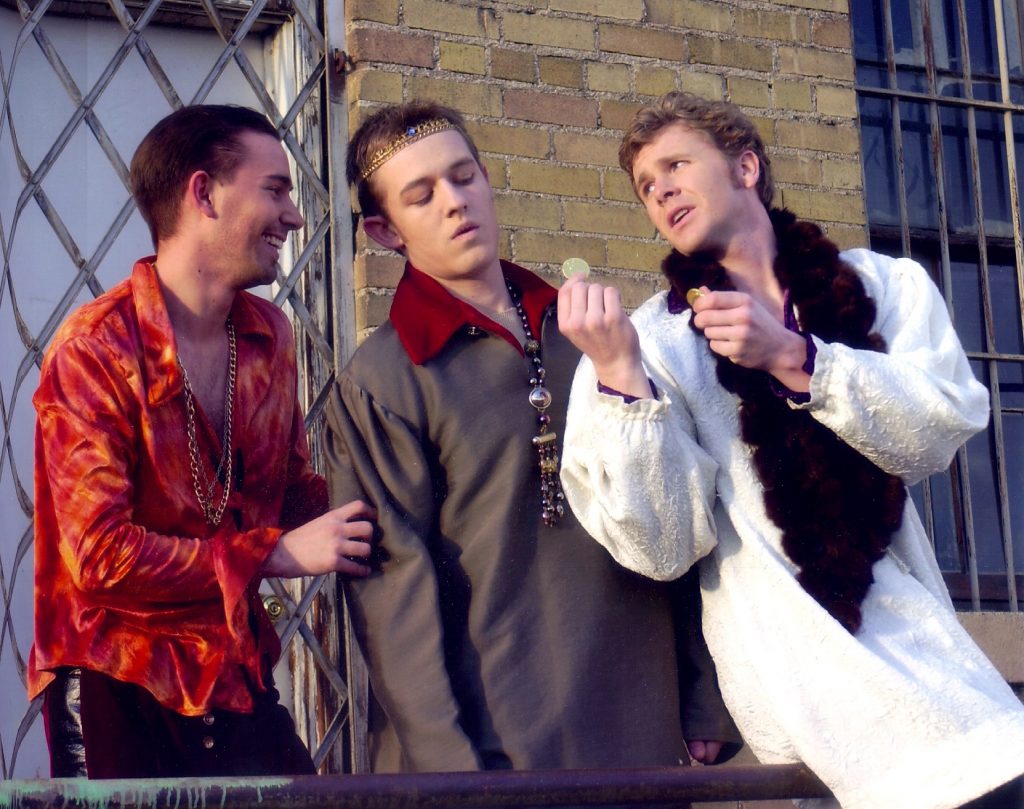
The Theater Department will hold three-in-one auditions for “Chariots of Fire,” “The Crucible” and “Macbeth” on Monday, Sept. 26, through Wednesday, Sept. 28, in preparation for the upcoming season.
Auditions initially were only supposed to run two days, but due to the high number of people signing up, the directors added an extra day. The auditioners will perform two monologues: one of their choice, and one from a play by Arthur Miller.
Lindsi Neilson, stage manager for “Chariots of Fire,” said auditions are always a little crazy. Her job is to keep things organized and running smoothly during auditions. Things will be particularly busy this fall because auditions for three shows are being held simultaneously.
Neilson said the high number of auditioning students will only make final decisions harder for directors of the plays.
“I am always impressed by BYU students,” Neilson said. “They’re all very good, which invariably makes casting that much harder. I feel like we have a lot of students that are good enough to play any role we could throw at them.”
Tim Threlfall, who has directed both professional and university productions, will be directing the American premiere of “Chariots of Fire” at BYU this year. He said casting for a play is very different in the college world than it is with professionals.
The show’s success is the most important thing in the professional world, but serving the students takes first priority at BYU. Seniors in the BFA program get first preference in casting because they need a senior project before graduation.
In initial auditions like this one, Threlfall said he looks for three things: a good job on the monologue, believability, and a solid match for the character’s gender, age and essential characteristics.
From there, Threlfall said he takes his experience with professional Broadway actors to inspire his work with student actors.
“To see (the Broadway actors) work at that level is just terrific,” Threlfall said. “And I really enjoy it because it allows me then to come back and fairly or unfairly demand some of the same standards from my students here.”
Part of those high expectations are shown in the rigorous rehearsal and training schedule that actors are expected to follow upon landing a part.
Threlfall said the rule of thumb for most directors is that for every one minute of stage time in a production, actors need an hour of rehearsal time. A two-hour play requires 120 hours of rehearsal. Rehearsals will begin at the start of next semester, but actors in “Chariots of Fire” will begin physical track and field training for their parts much earlier.
Students who audition put next semester’s schedule on the line when they sign up. If they make it in, they agree to center their other activities around the huge time commitments required for rehearsals and performances.
Meredith Walsh, a senior from Seattle studying theater education, has lost count of how many times she’s auditioned. Every time, the results of the audition play a big part in determining her future plans.
“I’ve just come to accept that there’s a lot of limbo,” Walsh said. “That’s the nature of the beast. You audition for a lot, and you get a couple from the bunch.”
Walsh said she leaves her schedule flexible and always keeps her hopes high, but has gradually learned to not take rejection personally.
To Walsh and others, the benefits of theater outweigh the frequent disappointment, unpredictability and high expectations.
“The thing about theater and drama is that they allow you insights into the human experience and what it means to be a human,” Walsh said. “And that makes it all worth it.”




